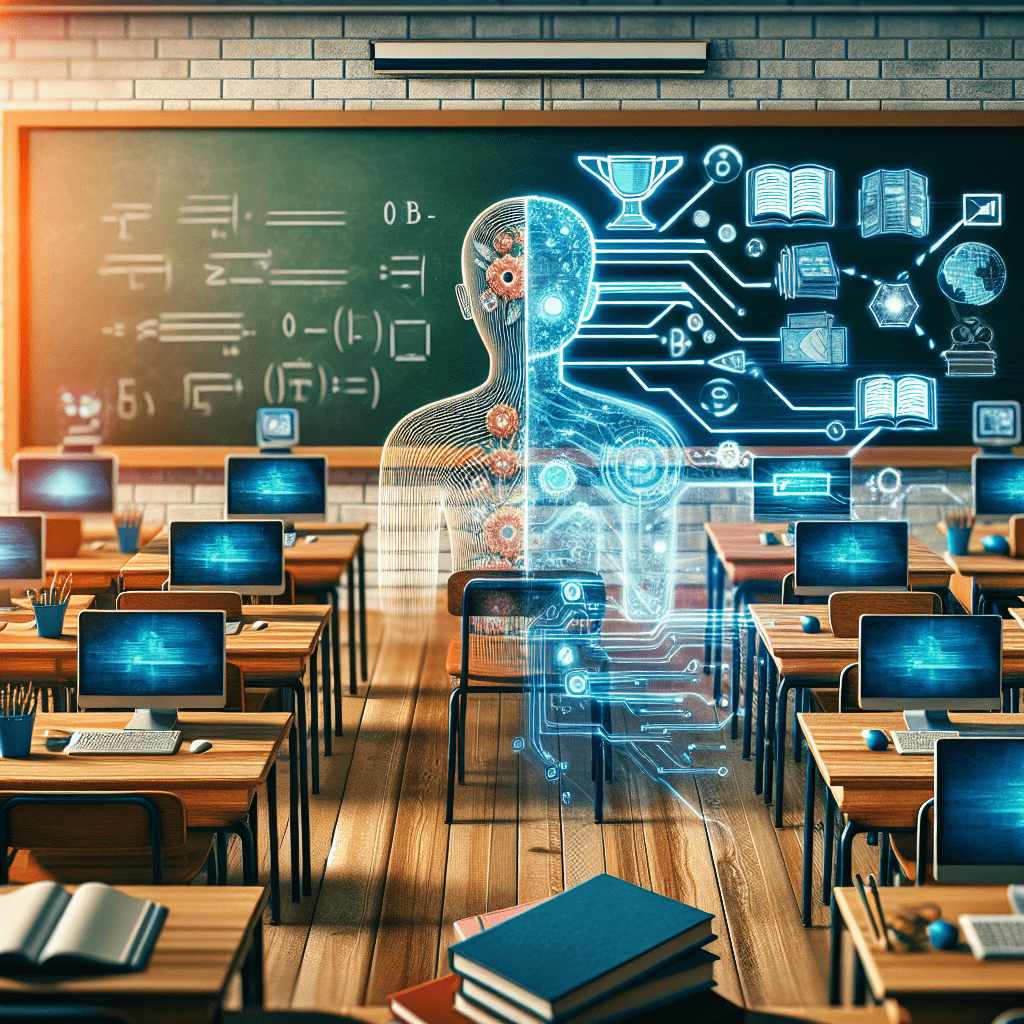Artificial Intelligence (AI) technology has made significant advancements in recent years, revolutionizing various industries and sectors. One area where AI is already having a noticeable impact is in education. From classroom to computer, AI is changing the way students learn and teachers teach. In this article, we will explore the implications of AI on education and how this technology is shaping the future of learning.
The Role of AI in Education
One of the primary ways AI is transforming education is through personalized learning experiences. AI-powered platforms and tools can analyze student data and behavior to create customized learning paths for each individual student. This allows teachers to cater to the unique needs and learning styles of their students, ultimately improving learning outcomes.
AI also has the potential to automate administrative tasks in education, such as grading assignments and tests. This frees up teachers to spend more time on important tasks like lesson planning and student engagement. Additionally, AI can provide instant feedback to students, helping them to track their progress and identify areas for improvement.
AI-Powered Tools and Platforms
There are a variety of AI-powered tools and platforms that are being used in classrooms around the world. For example, tools like Carnegie Learning and DreamBox Learning leverage AI to provide adaptive learning experiences for students. These platforms can identify areas where students are struggling and provide additional support and resources to help them succeed.
AI is also being used to create virtual tutors and chatbots that can provide support to students outside of the classroom. These virtual assistants can answer questions, provide explanations, and offer personalized recommendations based on a student’s individual needs.
The Future of AI in Education
As AI continues to advance, it is likely that we will see even more innovations in the field of education. Virtual reality (VR) and augmented reality (AR) technologies, combined with AI, have the potential to create immersive learning experiences that were previously unimaginable. These technologies can transport students to different locations and time periods, allowing them to explore concepts in a hands-on and interactive way.
AI also has the potential to address challenges in education, such as student retention and engagement. By analyzing data on student performance and behavior, AI can help identify at-risk students and provide targeted interventions to support their success. This personalized approach to education has the potential to revolutionize the way we think about teaching and learning.
Conclusion
AI is transforming education in significant ways, from personalized learning experiences to automated administrative tasks. The impact of AI on education is still in its early stages, but the potential for growth and innovation is vast. As AI technologies continue to evolve, we can expect to see even more advancements in the field of education, ultimately enhancing the learning experience for students and teachers alike.
FAQs
Q: Will AI replace teachers in the classroom?
A: While AI has the potential to automate certain tasks in education, such as grading assignments, it is unlikely that AI will replace teachers altogether. The role of teachers is irreplaceable in providing mentorship, support, and guidance to students.
Q: How can AI benefit students with learning disabilities?
A: AI-powered tools can provide customized learning experiences for students with learning disabilities, helping them to access the resources and support they need to succeed. AI can also help teachers identify and address the specific needs of these students more effectively.
Q: Are there any ethical concerns surrounding the use of AI in education?
A: There are concerns about data privacy and security when it comes to using AI in education. It is important for schools and educators to be transparent about how student data is collected, stored, and used to ensure the ethical use of AI technologies.
Quotes
“AI has the potential to revolutionize education by providing personalized learning experiences that cater to the unique needs of each student.” – John Smith, AI Educator
#Classroom #Computer #Impact #Education


